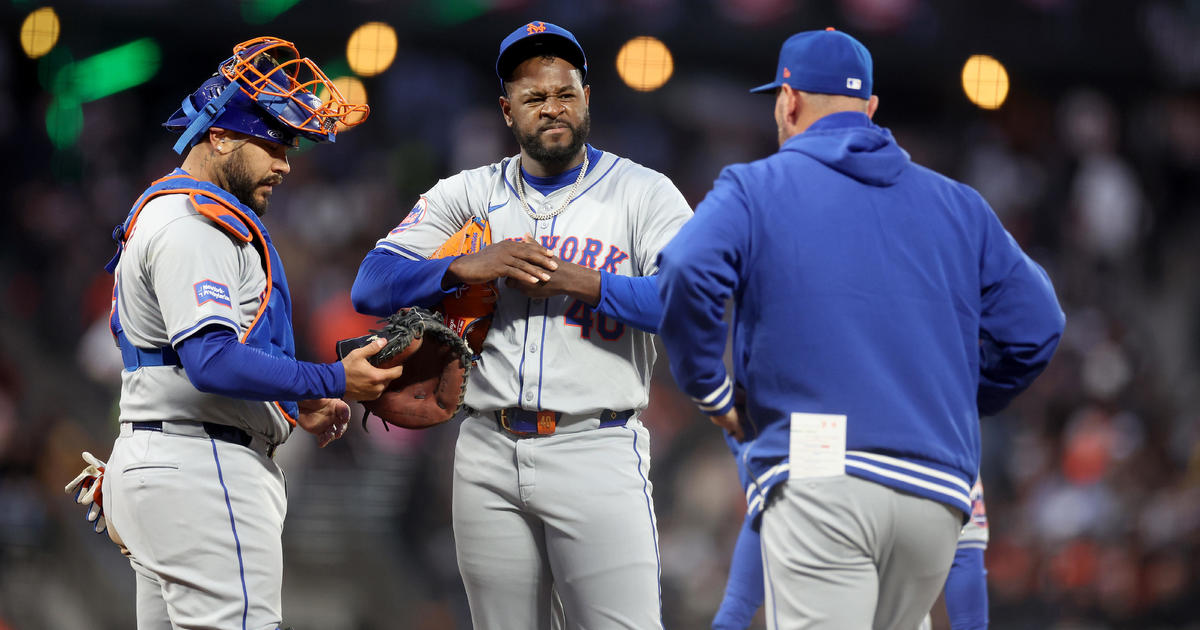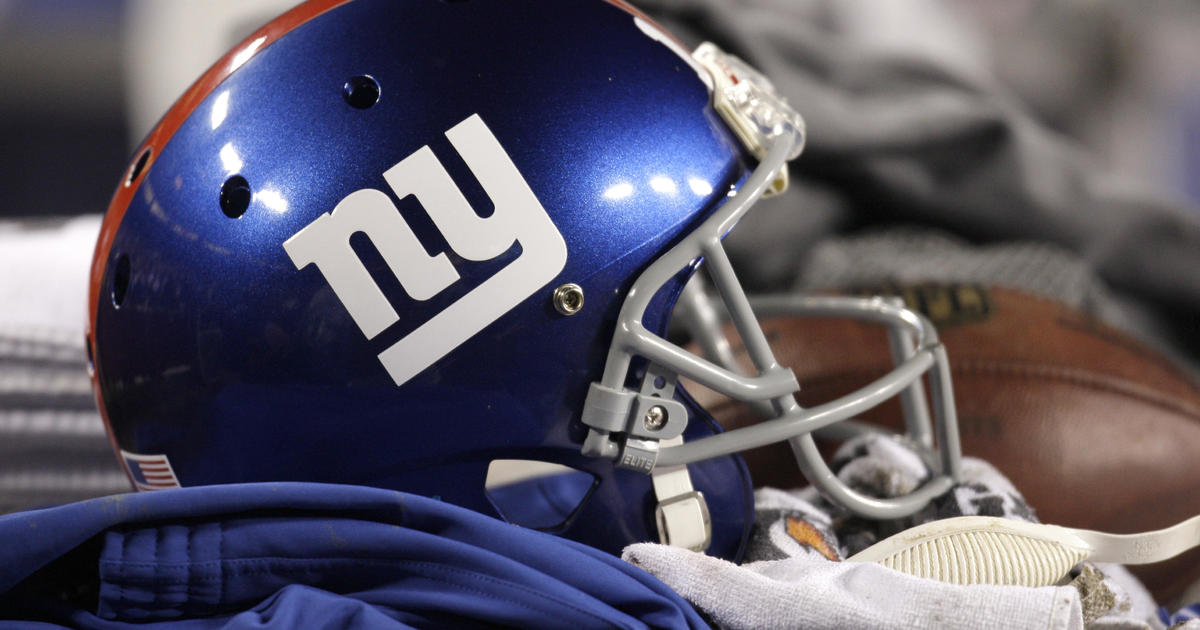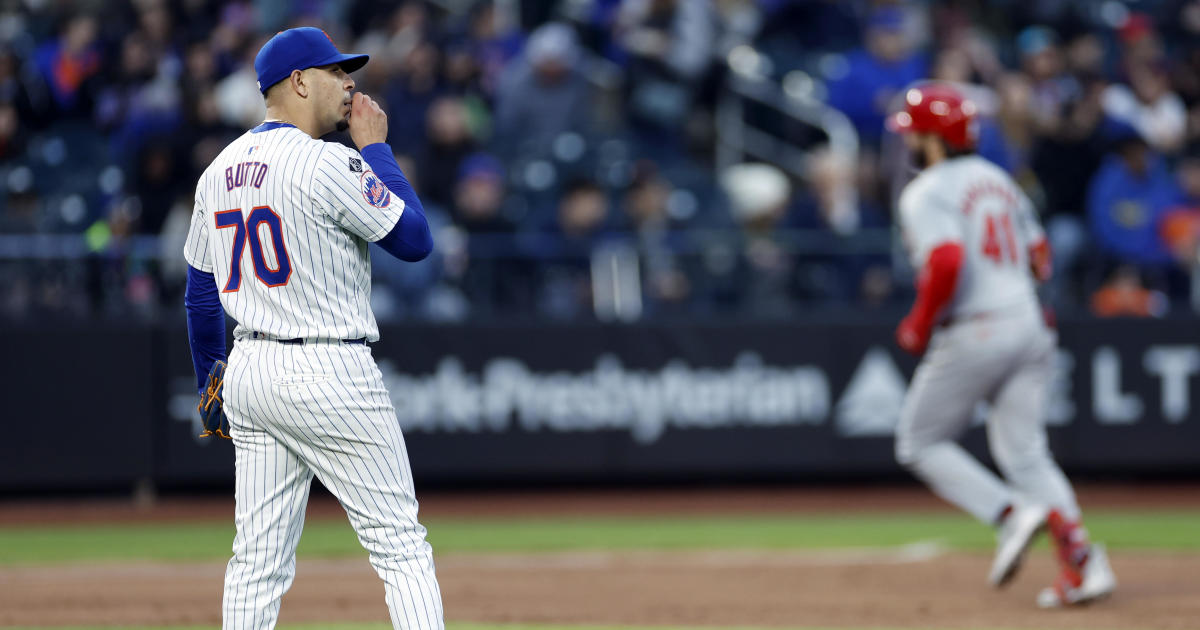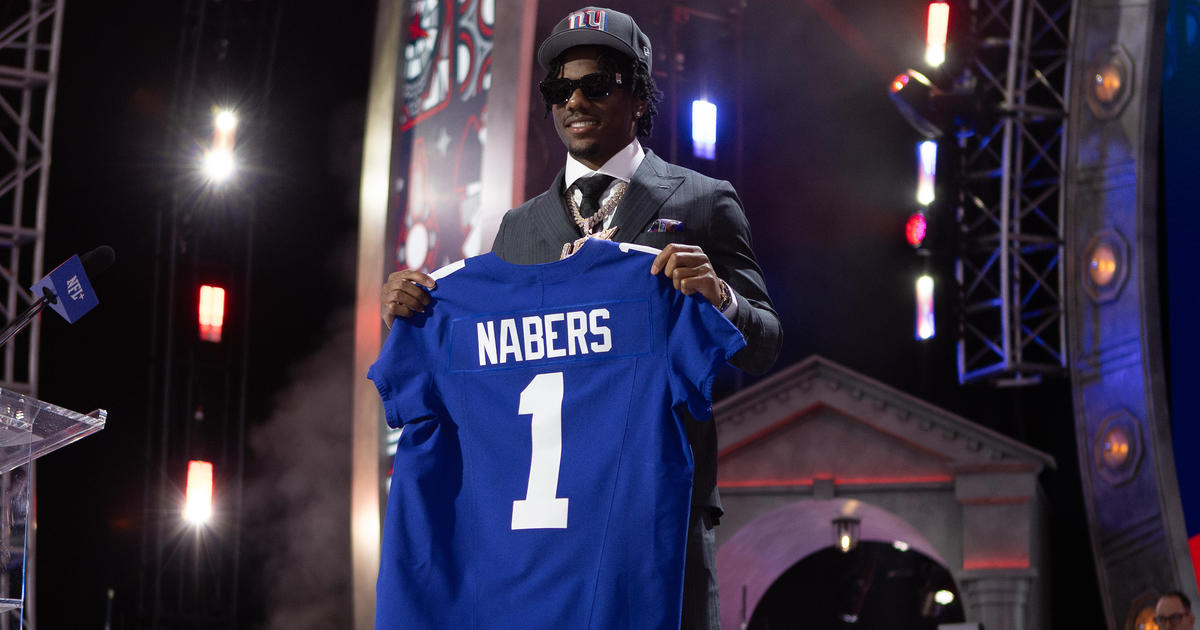Silverman: Cubs' 'Curse' Became A Thing When '69 Mets Ran Them Down
By Steve Silverman
» More Columns
There's simply no beating Madison Bumgarner in the postseason, and the Mets found that out the hard way on Wednesday night.
The San Francisco Giants may have turned their season around with a three-game sweep of the Los Angeles Dodgers during the final regular season series, followed by their 3-0 victory over the Mets in the wild card game.
While Bumgarner won't pitch until Game 3 of the NLDS against the heavily favored Chicago Cubs, his talent and dominance looms over the postseason. Cubs fans have a long and deep pessimistic streak, and their fears are being fanned by the 108-year slump since their last World Series title.
The Cubs simply blow everyone away when it comes to championship droughts. The New York Rangers put away the infamous "1940" chant in 1994 -- a mere 54 years between titles.
The Cleveland Indians have not won a title since 1948, but that 68-year wait is nothing compared to their Midwestern neighbors.
The Cubs last appeared in the World Series in 1945 and fell to the Detroit Tigers (32 years and counting since their last title) in seven games. However, the subject of the Cubs and a championship drought did not come into clear view until 1969.
That's a magical year for all New York sports fans for a number of reasons. The year started with perhaps the most significant game in NFL history, the Jets beating the Colts in Super Bowl III. Joe Willie Namath and the American Football League got the best of the mighty Colts, Don Shula and the National Football League, and the Super Bowl went from being a big game to a full-fledged institution.
Later that year, the Mets pulled off one of the great championship runs Major League Baseball has ever seen.
The Mets were a team with a remarkable pitching staff that included Tom Seaver, Jerry Koosman, Gary Gentry and a young flame-throwing phenom named Nolan Ryan.
They had a hitting machine in left field in Cleon Jones and a superb fly-chaser in center field in Tommie Agee. They had battlers like Jerry Grote, Ron Swoboda, Bud Harrelson and Ed Charles. When they added slugger Donn Clendenon in a trade with the Pittsburgh Pirates, manager Gil Hodges had a team that had a remarkable ability to play its best baseball when it mattered most.
The Mets did not have the same kind of talent as the Cubs -- at least on paper. The Cubs had a fine pitching staff led by Ferguson Jenkins, and a dominating lineup that included Ernie Banks, Billy Williams, Ron Santo and Randy Hundley.
Hard-driving manager Leo Durocher pushed his superstars in an unrelenting manner throughout the summer, and the Cubs built a huge lead in the NL East.
That year was the first that featured divisional play, and the Cubs were not even giving the Mets any consideration as their lead in the division continued to stretch. The Cubs had a nine-game advantage as late as Aug. 16.
But the Mets were unimpressed and won 39 of their last 50 games. At the same time, the Cubs slumped badly. Their troubles were at their worst in September as they went just 8-17.
The Mets went by the Cubs as if they were Secretariat flying down the stretch in the Belmont Stakes.
Few think of the 1969 Mets as a great team, but what they did was something that very few teams accomplish. The Cubs were a great team, but the Mets beat them every time it mattered.
Those same Mets swept a strong Atlanta Braves team that had outfought the Dodgers, Giants, Reds and Astros for the first NL West title. The Braves featured Henry Aaron near the peak of his powers, and they also had two other tremendous sluggers in Rico Carty and Orlando Cepeda.
The Braves were heavy favorites in the series, and most believed the Mets pitching would have to be pinpoint to beat them. Well, the Braves solved the Mets pitching as they scored 15 runs in three games. The Mets simply mashed the Atlanta pitching staff.
Nobody gave the Mets a chance against the Baltimore Orioles in the World Series, nor should they have. The Orioles had a pitching staff that featured Jim Palmer, Mike Cuellar and Dave McNally, and a powerful lineup that included Frank Robinson, Brooks Robinson and Boog Powell.
The Orioles could hammer, pitch and play remarkable defense, and they had one of the best managers in the game in Earl Weaver. But as talented as they were -- and they would pound Cincinnati's Big Red Machine in the World Series the following year -- they could not play with the Mets.
After New York dropped the first game of the series, the Mets reeled off four straight in one of the most remarkable World Series performances of all-time.
They were a sensational group that had steeled itself in the regular season by running down and catching the Cubs, and then leaving them in the dirt.
That's how Chicago's "curse" first became a thing.
Now Chicago has its opportunity to end its century-plus walk in the desert.
It could have ended 47 years ago, but the Mets had other ideas.
Please follow Steve on Twitter at @ProFootballBoy




